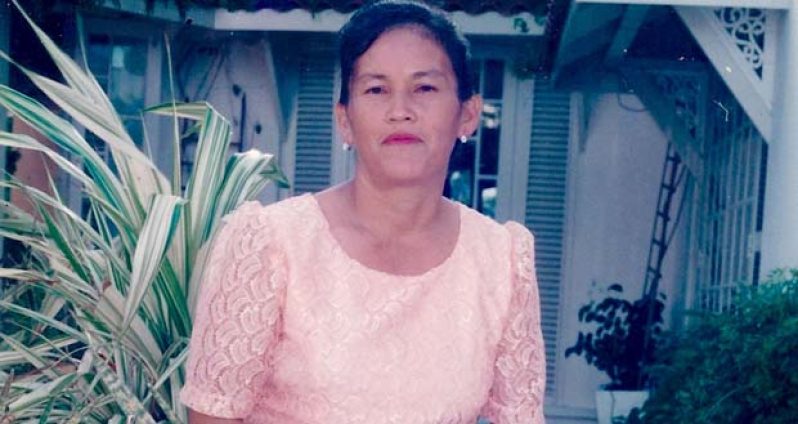BEING a teacher in Kato, Region 8 (Potaro/Siparuni), at just the age of 16 was not the easiest thing for Miss Elizabeth Abraham. Nevertheless, she lasted for 40 years in the profession and retired as the head teacher last year, having helped countless individuals in the village.
Well known as ‘Ms Liz’, 56, she was born and raised in Kato after her father, Mr. Francis Gomes, of Region 1 (Barima/Waini) went to Kato as a preacher and teacher and met her mother Priscilla.
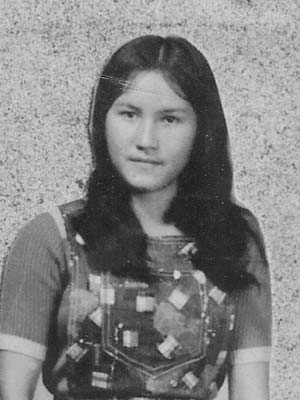
She and her nine siblings grew up helping out on their parents’ farm each day after school and on weekends. Though it required hard work, Ms. Liz said it was fun and taught them many things in life, such as contentment and diligence in acquiring whatever they needed instead of always depending on others.
Working on the farm also taught them to be self-sufficient in the sense that they made do with whatever they cultivated instead of having to purchase everything. “We planted almost all of the vegetables; everything you can think about. We grew up hard working. Everyone came together at night to shell the peas and beans that would have eventually been sold. The experience was nice and it taught us we have to do things for ourselves. It was fun growing up in Kato,” she reflected in an interview with the Chronicle recently.
To this day, all of her brothers have continued to farm, and though she has scaled down, she plants little things that she can handle such as peppers and a few vegetables.
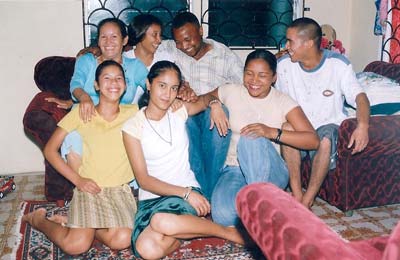
Voluntary Work
In her days, there was no secondary school in Kato. In fact, one is now in the process of being constructed there. Ms. Liz therefore only managed to secure a primary education. Growing up, she wanted to become a nurse but she explained that she did not meet the criteria due to the limited circumstances that were available back then.
After writing the ‘School Leaving Exams,’ she opted for the next best thing to her, that of teaching. In 1974, she worked as a voluntary teacher for three months until she was appointed.
Ms. Liz taught for two years at Chiung Mouth Primary School, located about 15 miles from Kato, and spent the rest of her time at the primary school in Kato. Approximately 12 years after starting to teach, she was afforded the opportunity to be trained at the Cyril Potter College of Education (CPCE) in Georgetown.
She was officially appointed head teacher in 2004 but had been carrying out those functions ever since the 1980s.
Last year March when she retired would have made 40 years for her in the teaching profession. But even after retiring, Ms. Liz
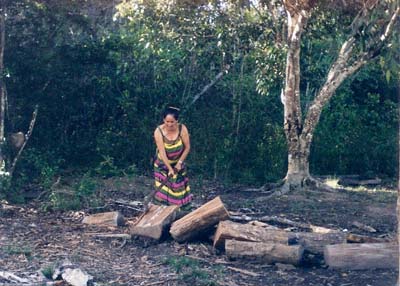
spent the next three months working with the children on a voluntary basis.
The Patamona Dialect
Ms. Liz recalled waking up at 3:30 am each day to plan her lessons for the school day. A number of things made her work especially challenging. For one thing, she was the only teacher at the school who knew the Patamona Dialect. (Each Amerindian tribe has its own dialect)
“We used to get teachers from the coastland who couldn’t speak the dialect so that is where I had to do a lot of hard work. Many of the children wouldn’t know English so I had to serve as translator on many occasions for those teachers.
“When I started, there were only two coastland teachers and they didn’t know Patamona so they couldn’t effectively communicate with the children. I even had to provide all the explanations to parents at the PTA (Parent/Teacher Association) Meetings.”
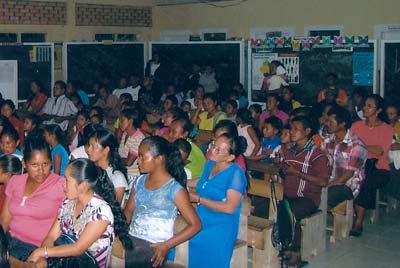
Ms. Liz said her father was a big help as far as her learning English was concerned. “He never wanted me to speak Patamona, even at home, because he said when the exams came in school, nothing would be in Patamona. But I couldn’t escape learning the dialect. So I knew both,” she explained.
Though the language barrier posed many challenges, Ms. Liz said the best thing about it was seeing the children, who knew nothing in English, being able to learn and speak the language. This gave her great satisfaction and made her hard work worthwhile.
Another challenge she had to endure was the attitude of some parents who reacted negatively when discipline had to be administered to their children and who took no interest in their children once they were home from school.
“In those days, I felt like quitting sometimes. but my dad was of great encouragement and he told me not to leave. I believe parents in Kato ought to do more for their children; they would do much better that way,” she posited.
Life is Good
Today, it is as if Ms. Liz is on a continuous vacation. “Life is so good. I’m at ease. I’m just relaxing and enjoying every day, especially with my (eight) grandchildren.”
In fact, she is currently spending time in Georgetown helping out one of her daughters recover from the aftermath of childbirth.
She misses home, though, and once there would still do her best to help out the children who are in need.
Asked if she would consider teaching again upon completion of the Kato Secondary School, Ms Liz said she would definitely not mind if she was requested to.
Her six children are Alita, Keith, Karen, Delon, Lysbeth and Larissa.
(By Telesha Ramnarine)




.png)


